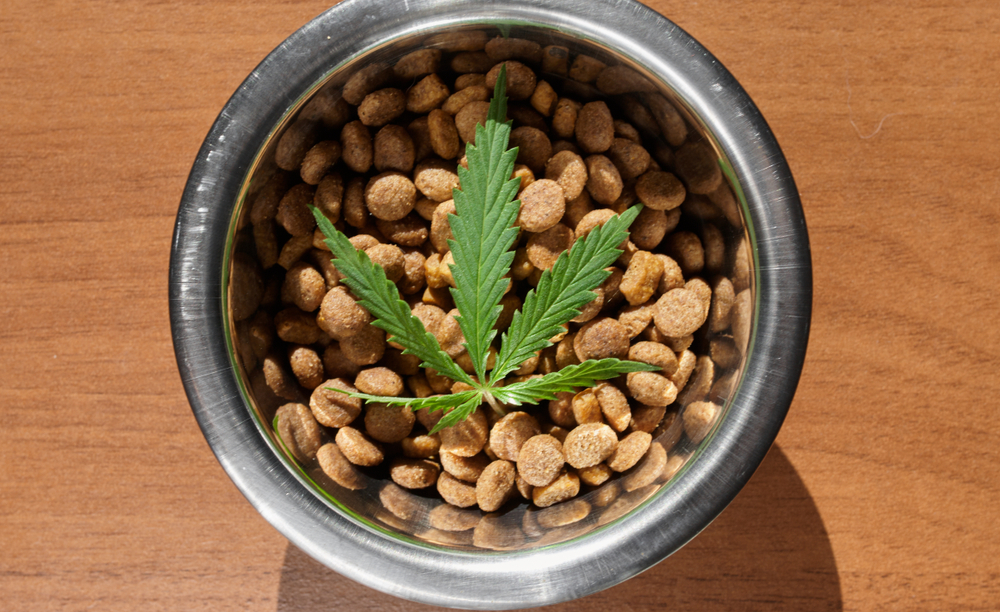Tails
Making pet parenting easy

How Your Pet Can Benefit From Cannabis (CBD) Oil
This entry was posted on 2020-01-13.
When the legislation was passed for people to be able to use cannabis in their personal capacities, it opened up a world of experimentation of the medical capabilities of this wonder plant. This is as true for us humans as it is for our pets. Cannabis has the incredible power to heal in many ways, however, there are a few crucial differences that one needs to be aware of to ensure that you choose the correct product for your dog or cat.
Cannabis is a genus of flowering plants from the Cannabaceae family and it is thought to consist of 3 primary species namely; Cannabis sativa, Cannabis indica and Cannabis ruderalis. The most common is Cannabis sativa.
If you are not particularly clued up on cannabis then this is the article for you. Cannabis is also called hemp or marijuana, isn’t it? So what is the difference? Firstly, both relate to Cannabis but technically neither are actually plant terminologies. These terms are neither ‘species’ or ‘strains’ of the Cannabis plant but rather a broad classification or description adopted by popular culture.
HEMP & MARIJUANA
“Hemp” is a term used to classify varieties of Cannabis that contain 0.3% or less THC (tetrahydrocannabinol) content (by dry weight) and has no psychoactive effects. This is the term associated with its uses as a fibre source to produce things like textiles and paper.
“Marijuana” is a term used to classify varieties of Cannabis that contain more than 0.3% THC (tetrahydrocannabinol) (by dry weight) and can induce psychotropic or euphoric effects on the user. This is the substance that creates the ‘high’ effect in recreational drug usage of cannabis.
WHERE DOES CBD (CANNABIDIOL) COME IN?
The answer is simple. CBD is derived from the Cannabis plant. What is important to note is that CBD oil can be derived from marijuana and not have any THC in it.
WHY IS THIS IMPORTANT TO KNOW WHEN PURCHASING CBD?
Basically, it is important so that one can understand the terminology when buying these products, as there can be legal implications in some instances. There is such a buzz around them right now and there are so many unregulated manufacturers, all claiming to be the best. But the crucial part of CBD oil is not from which plant variety of cannabis it is derived from, but rather the extraction method and quality of cannabinoids it contains.
So now, let’s look simply at the active ingredients we are interested in again. Cannabis plant species contain 80 different cannabinoids, which include THC (tetrahydrocannabinol) and CBD (cannabidiol). THC is the psychogenic cannabinoid and CBD is the medical cannabinoid.
It is crucial to understand the difference in these 2 cannabinoids, as some human CBD oil made from Marijuana can contain THC. And THC is toxic to our pets.
Regulations on products SA:
Currently CBD oil is legal and can be sold over the counter, without a prescription if the product meets three criteria:
1.) The product can contain a maximum daily dose of 20mg cannabidiol.
2.) It may only claim to enhance general health and relieve minor symptoms without relating to specific disease or disorder.
3.) If made from raw cannabis, CBD content must not exceed 0.0075% and THC must not exceed 0.001%.
There is CBD oil that does not fall into these criteria and to buy these products legally, one would need a prescription, as it is a schedule 4 drug (the same as an antibiotic). But as there are clear benefits of the product, it is worth getting what is best for your pet and knowing what you are purchasing.
In our dogs and cats there are many anecdotal benefits of CBD oil, and the research is still ongoing. Currently, CBD oil is used to treat ailments such as seizures, arthritis and pain, adjunct therapy in cancer protocols, anxiety and stress associated with behavioural issues, upper respiratory diseases and asthma (especially in cats) and many gastrointestinal issues, to name a few.
As with all nutraceuticals and medications, it is essential to use the correct dose to avoid any unwanted side effects. The accepted starting dose in animals is 0.2mg/kg. This can be increased if recommended by you veterinarian and depending on the illness. However, if using an over the counter product one should always read the package insert and follow the manufacturer's recommendations.
The take-home message with CBD oil is that it is a great product. But remember that it’s not a miracle medication and never expect it to be the one drug that fixes everything. It definitely has its place in veterinary medicine and the benefits are countless. You just need to know what you’re buying, as there really are so many products on the market. Use the correct dose for your pet and have realistic expectations on what it will do for the general health of your pet.
Check out our range of QUALITY CBD Oils, specifically for pets.


